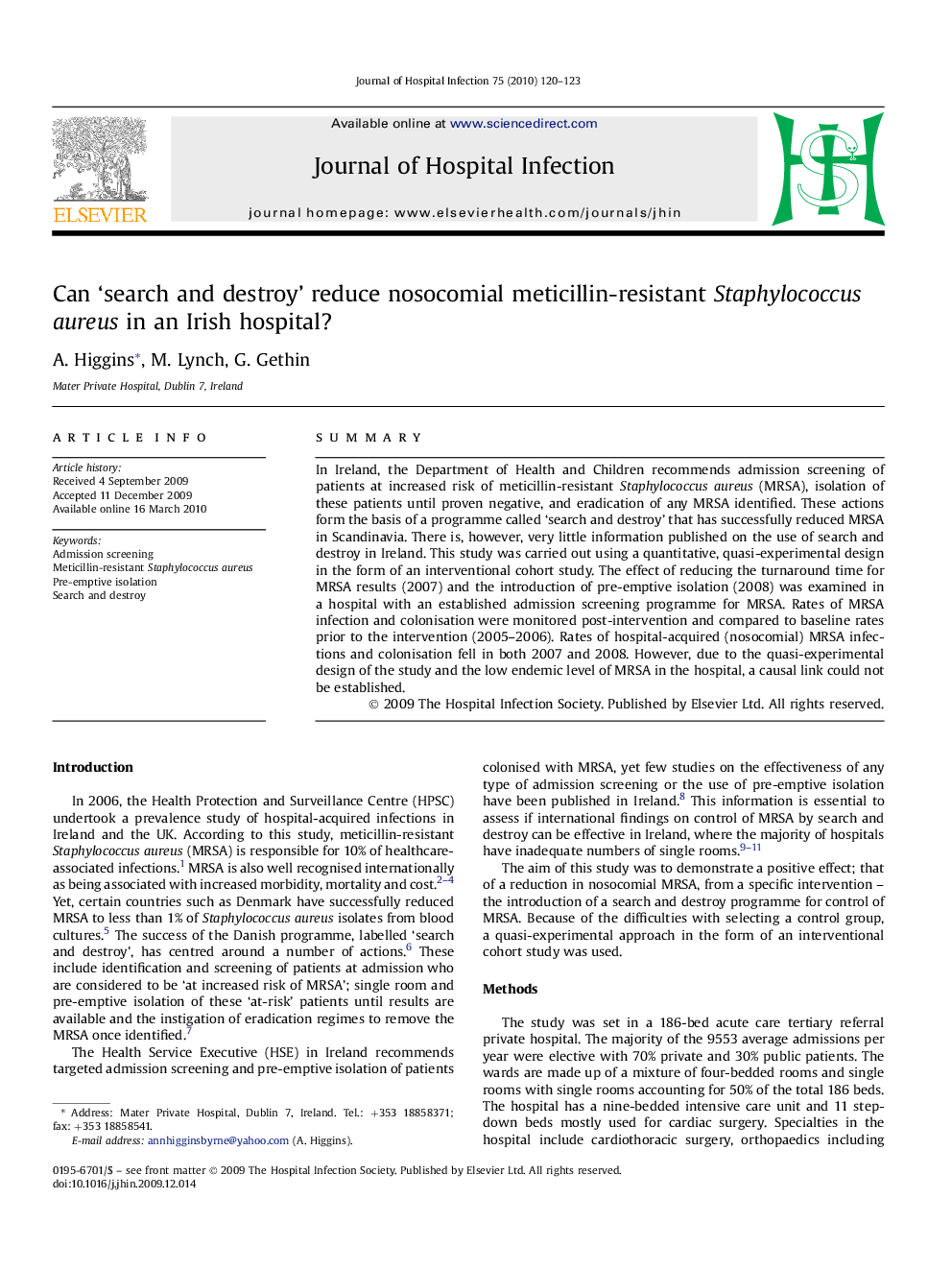| Article ID | Journal | Published Year | Pages | File Type |
|---|---|---|---|---|
| 3372881 | Journal of Hospital Infection | 2010 | 4 Pages |
SummaryIn Ireland, the Department of Health and Children recommends admission screening of patients at increased risk of meticillin-resistant Staphylococcus aureus (MRSA), isolation of these patients until proven negative, and eradication of any MRSA identified. These actions form the basis of a programme called ‘search and destroy’ that has successfully reduced MRSA in Scandinavia. There is, however, very little information published on the use of search and destroy in Ireland. This study was carried out using a quantitative, quasi-experimental design in the form of an interventional cohort study. The effect of reducing the turnaround time for MRSA results (2007) and the introduction of pre-emptive isolation (2008) was examined in a hospital with an established admission screening programme for MRSA. Rates of MRSA infection and colonisation were monitored post-intervention and compared to baseline rates prior to the intervention (2005–2006). Rates of hospital-acquired (nosocomial) MRSA infections and colonisation fell in both 2007 and 2008. However, due to the quasi-experimental design of the study and the low endemic level of MRSA in the hospital, a causal link could not be established.
